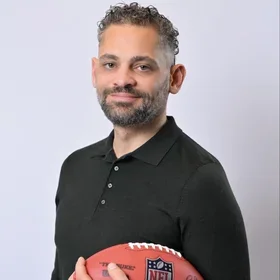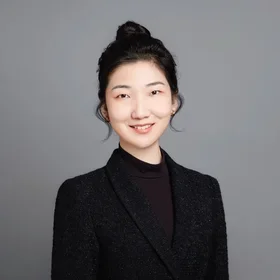As a native Canadian who sees New York as her second home, Dr. Marie-Julie Trahan’s Columbia experience is not typical of most international students. “As a foreigner, I found myself instinctively comparing healthcare policies between the United States and Canada. I was constantly trying to understand how each country’s cultural and political environments influence the various bioethical issues we addressed in our classes.”
Dr. Marie-Julie Trahan was in a medical school rotation when she discovered her passion for maternal-fetal health. "There, I felt--and continue to feel--immensely privileged to accompany patients through their pregnancies and deliveries," she says. Caring for high-risk patients, in particular, was most inspiring and rewarding for her; the weight of that responsibility is what led her to pause her medical school rotation and enroll in Columbia University's Bioethics M.S. program.
"To date, the knowledge and skills that I acquired through Columbia’s Master of Science in Bioethics program have not only helped me better counsel and guide expectant parents through difficult decisions, but they have allowed me to contribute a unique perspective to both my clinical and research work.”
Dr. Trahan is now a proud alumni of the M.S. Bioethics program and is currently an Obstetrics and Gynecology Resident at Centre Universitaire de Santé McGill. She recently shared the ways by which she’s applying her Columbia degree at the hospital.
What was your experience like as a student from Canada? Why did you join Columbia’s program in New York, in particular?
I chose Columbia’s Master of Science in Bioethics program because it offered a number of classes that would allow me to study the ethical issues that confront the specialty of Obstetrics and Gynecology (e.g. reproductive ethics). In addition, I was particularly interested in the Clinical Ethics Practicum, as well as the potential research opportunities within the Columbia University Irving Medical Center. I wanted to complete the master’s program in person to immerse myself in these experiences.
What led you to pursue maternal-fetal medicine and how has Columbia impacted your career path since graduating?
My interest in maternal-fetal Medicine was first ignited during an elective rotation in medical school. That particular rotation was one of the most interesting and defining experiences of my medical school training. I was immediately drawn to the high energy of the labor and delivery Unit. There, I felt—and continue to feel—immensely privileged to accompany patients through their pregnancies and deliveries. I find that caring for high-risk patients is most inspiring and rewarding.
To date, the knowledge and skills that I acquired through Columbia’s Master of Science in Bioethics program have not only helped me better counsel and guide expectant parents through difficult decisions, but they have allowed me to contribute a unique perspective to both my clinical and research work. I am planning on pursuing an academic career in maternal-fetal medicine, and I am confident that my bioethics background will prove very useful, as I plan to focus my future work on complex decision-making and extreme prematurity.
Who was your favorite Bioethics professor (or class) and why?
I had so many wonderful professors and interesting classes – it’s difficult to just choose one! I learned a great deal in Professor Jonathan Engel’s Health Policy and Bioethics class. Since I plan to pursue my fellowship training in the United States, one of my objectives during my master’s degree was to get a deeper understanding of the American healthcare system and how healthcare policy affects maternal and child health. Professor Engel’s class helped immensely. Professor Kuflik’s Philosophy of Bioethics and Reproductive Ethics classes were also favorites.
At the outset of the pandemic, there was a public backlash against new, restrictive visitation rules for pregnant people/ people in labor. How have bioethical considerations changed those visitation rules since the beginning of the pandemic?
At the outset of the pandemic, hospitals were faced with an unprecedented situation, and there was so much that we did not know and did not fully understand about COVID-19. I actually wrote an article, COVID-19 Labor & Delivery- Hospitals Should Determine Their Own Temporary Support Person Restrictions, about restrictive visitation policies in Voices in Bioethics. Media headlines that said pregnant people being “forced to give birth alone” instilled more fear and mistrust, instead of focusing on solutions. While Labor and Delivery nurses and doctors were doing their best to support their patients through these difficult times, others were also unhappy with the implementation of these policies.
However, there was a real fear that without these policies, patients and healthcare workers would be at greater risk of infection, and that already understaffed units would no longer be able to care for patients. Fortunately, as PPE and testing became more available, many units were able to welcome partners and other support persons back, and these policies were eased.
How did you enhance your studies outside of the classroom as a Columbia student?
As part of my Independent Study, I worked with faculty from the Departments of Pediatrics and Obstetrics and Gynecology at New York-Presbyterian (NYP) Hospital to develop a study on extremely early delivery counseling. The objective of the study was to evaluate the current training practices and educational needs of OB/GYN residents in their counseling of pregnant patients when complications arise very early in the pregnancy. Unfortunately, our research activities were suspended because of the pandemic. Nonetheless, I am very grateful for the opportunity to have worked closely with faculty from NYP, and I am hoping to build on this work during my fellowship.
What advice would you give current bioethics students who are considering a similar career path to yours?
My advice is to follow your passion and go for it. The process of applying to medical school and residency can be difficult, but if you love it, it is so worth it! Also, do not hesitate to deviate from the standard path to better prepare for the career you will devote your life to. When I decided to take a year to pursue a master’s degree in the middle of my five-year-long residency program, many people were surprised. Looking back, I am so happy with my decision, and have no doubt it will impact my future career.
Learn more about Columbia University’s Bioethics M.S


